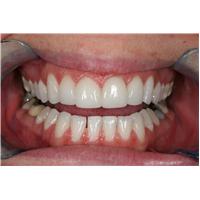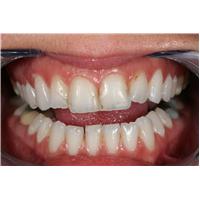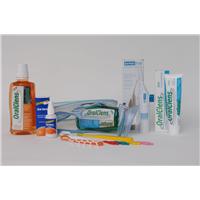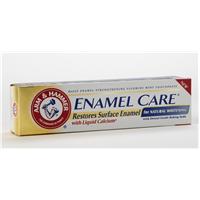
New research shows that millions of UK adults are seriously unaware of effective preventive tooth care. The survey, commissioned by Denplan, backs up recent research from Citizens Advice which shows millions of adults cannot access an NHS dentist – indicating a ticking time bomb for the already over-stretched British healthcare system.
Denplans survey of the nations tooth care habits showed a worrying lackadaisical attitude, with only 61 per cent of respondents bothering to brush their teeth twice a day, preferring to get the toothbrush out only once (31 per cent). Men were also the worst offenders, with 36 per cent of them brushing just once a day, and 70 per cent of women brushing twice a day or after every meal.
Dentists unable to educate
The reasons for this blasé attitude was largely down to ignorance of what a positive impact brushing twice a day has on tooth and gum health. Of those respondents who dont brush their teeth twice a day, 32 per cent thought it wasnt necessary or had the opinion that brushing once was better than not brushing at all (22 per cent). A worrying 19 per cent stated that they simply couldnt be bothered to brush twice.
Steve Gates, Managing Director at Denplan, comments: We do believe that much of this unawareness of oral hygiene is symptomatic of the fact that people increasingly have less access to dentists. Dentists provide vital after-care advice and help to educate patients on how to avoid serious problems.
Some of our other recent research shows that 34 per cent of private dental patients visit a private dentist because they cant find an NHS one. The current situation has a particular impact on low income households where going private may not be considered an option. As a result, for many the health of their teeth is not a priority which is stacking-up health issues for the NHS purse strings when emergency dental care is required.
More time spent washing the car
Almost three-quarters (72 per cent) of all respondents who brush their teeth dont spend enough time on each brush, brushing for less than two minutes the minimum recommended time to spend brushing your teeth.
Our respondents said that they dont have the time to brush their teeth twice or more times a day. But, only four minutes a day is needed to help you avoid any nasty dental problems that could mean pain, anti-social smelly breath or even losing some teeth. As adults, these are the only teeth we are ever going to get so, its frustrating to see people dedicate more time cleaning the car or putting their make-up on, continues Gates.
Tooth rot
The research also indicated that there is still a huge gap in understanding what foods cause tooth decay. More than a third of respondents dont know what the primary cause of tooth decay is with 37 per cent citing reasons such as plaque and lack of calcium, rather than the number one tooth rotter sugar.
From the research results, it was no surprise that 60 per cent of respondents had suffered dental-related problems in the last twelve months.
Of these, nearly twice as many men (21 per cent) than women (12 per cent) did nothing about it, whereas 87 per cent of women proactively consulted a dental professional or enhanced their oral health regime.
The research also showed that women (36 per cent) were better at flossing than men (21 per cent). With, 32 per cent of men also saying that they didnt use any other types of dental product such as mouthwash, floss, mints or chewing gum, that means there are a lot of frogs to kiss.
Find out more about Denplan www.denplan.co.uk
Denplan Ltd., part of the AXA Group, is the UK’s leading dental plan provider with an approximately 80% market share. Denplan has more than 6,500 member dentists nationwide (around a third of General Dental
Practitioners) and over 1.8 million registered patients. The company was established in 1986 by two dentists who pioneered the concept of dental payment plans. Today Denplan provides a range of plans for adults and children, enabling patients to spread the cost of their dental care through a fixed monthly fee. Denplan supports regular attendance and preventive care, reducing the need for clinical intervention and helping patients to maintain healthy teeth and gums for life.
Denplan Care: all routine and restorative care + worldwide dental A & E cover
Denplan Essentials: routine care only + worldwide dental A & E cover
Plans for Children: routine and other agreed care + worldwide dental A & E cover
Denplan Emergency: worldwide dental A & E cover only
Denplan Enhance: interest-free patient loans of £250 £25,000 for dental treatment
Company Dental Plans: company funded, voluntary and flexible benefit schemes
Denplan also provides a range of professional services for its member dentists, including the Denplan Quality Programme, Denplan Excel accreditation programme and Denplan Training.
Patient enquiries telephone: 0800 401 402
Dentist enquiries telephone: 0800 328 3223
About the survey
All figures, unless otherwise stated, are from YouGov Plc. Total sample size was 1,974 adults. Fieldwork was undertaken between 11th – 14th January 2008. The survey was carried out online. The figures have been weighted and are representative of all GB adults (aged 18+).













